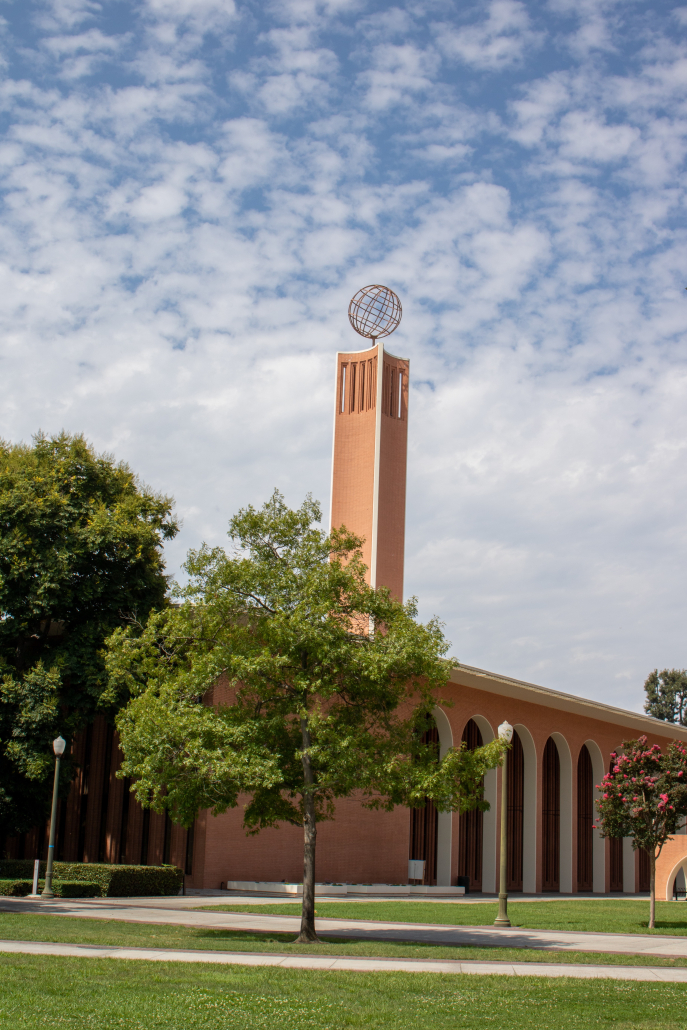Experts weigh in on invasion of Ukraine

The Russian invasion of Ukraine, which began Feb. 24, is the latest extension of the ongoing Russo-Ukrainian war. At the time of publication, 874,000 Ukrainians have since fled the country and 361,000 Ukrainian military personnel, outnumbered three to one by the Russian military, continue to fight back. In Ukraine, hundreds are dead or injured as Russian missiles level major cities; in Russia, Western sanctions incited panic as Russia’s currency, the ruble, lost almost half of its value overnight.
The Daily Trojan spoke with USC international relations and cybersecurity experts, discussing the war and its impact on Ukraine, Russia and the world at large.
Gregory Treverton, who served as chair of the National Intelligence Council under the second Obama administration, identified Russia’s 2014 annexation of Crimea as one of the “immediate antecedents” to the current invasion.
“The Crimea operation was fairly simple,” said Treverton, a professor of practice of international relations and spatial sciences. “Crimea had long been a part of Russia, given to [Ukraine] by [Nikita] Khrushchev … I’m told by international lawyers that if Russia had gone to the international courts, they probably could have legitimized their claim to Crimea.”
Treverton also said the “stable, continuing violence” in Luhansk and Donetsk since 2015 as part of the “backdrop” of the conflict. Both are disputed territories currently controlled by Moscow-backed separatists whom the Ukrainian government considers terrorists. Putin recognized their independence in a Feb. 21 referendum, three days before invading Ukraine.
“I was one of those who thought that major invasion didn’t make any sense for [Putin],” Treverton said. “My hypothesis was that he was trying to get international attention and create a bargaining chip for negotiations with NATO about his security concerns, but the [military] buildup was much bigger than for that [reason].”
Putin announced the invasion in a televised address Feb. 24, claiming “Ukraine has never had its own authentic statehood.” Treverton said that while Putin “may actually believe his language,” there is another reason for his decision to invade.
“I think he fears that if Ukraine were independent — tolerably democratic, tolerably successful — [and] moved towards the West, that could be a danger of a color revolution in Russia itself,” Treverton said.
Western nations moved quickly to impose harsh economic sanctions against Russia, undermining its currency and toppling its economy overnight. Germany took especially drastic action: halting construction of the Nord Stream 2 Baltic Sea gas pipeline — an $11 billion energy project which aimed to import more Russian natural gas into Germany — and sending weapons to Ukraine in a policy reversal.
“I think [Putin] was surprised. Even I was surprised,” said Treverton of the sanctions. “The [Biden] administration has done a wonderful job of keeping NATO together, building a coalition. The fact that the Germans have come so far so fast, it’s really impressive.”
One reason Putin sought to blitzkrieg Ukraine was for the ease the Kremlin had in covering up the nature of the invasion — as well as the casualties. Treverton said that, while the Kremlin is “very good at controlling the narrative inside Russia,” he does not see how it can continue as the war goes on.
“You hear these oligarchs, mostly from the safety of London or New York, saying, ‘This is the end of Russia,’” Treverton said. “You get casualties, you get body bags coming back, [you] see the economic effects; and you’re asking yourself, ‘Why are we making war on Ukraine, anyway?’ … I feel like [Putin’s] in a pretty bad corner.”
Robert English, associate professor of international relations, Slavic languages and literature and environmental studies, who served in the U.S. Department of Defense from 1982 to 1986, called the sanctions a “balancing act.”
“[Western nations are] worried about backing [Putin] into a corner … or provoking him,” English said. “At the same time, we want to defeat him. We want to help Ukrainians fight this invasion off and do so, hopefully, at lower cost … So, how do we juggle helping the Ukrainians defend themselves, without appearing to enter the war in such a way that we’re fighting Putin, and that he feels justified in using a nuclear weapon or some other kind of escalation?”
English said Putin might be provoked anyway.
“He’s not winning,” English said. “And now it’s going to be a brutal, grinding slog. But, so far, he’s committed to it.”
Nonetheless, English said he believes the economic crisis in Russia, caused by sanctions, would “weaken” Putin’s political power.
“What matters to Russians is that this wasn’t supposed to happen,” English said. “This was supposed to be lightning-quick. They did not expect to have to pay such a steep economic penalty … Together with the economic pain, the humiliation and the international isolation, I think that quickly turns people against Putin.”
In the wake of the invasion, Belarus emerged as one of Russia’s only allies. In a referendum approved Sunday, Belarus reversed its non-nuclear status and agreed to host Russian nuclear weapons on its soil. English said the allyship was “bad for Belarus.”
“Once upon a time, Belarus tried to act a little more sovereign — push back, criticize Russia on some things,” English said. “Belarus didn’t even recognize the annexation of Crimea. There were lots of things where [Belarusian President Alexander] Lukashenko tried to keep his distance. All that’s forgotten now … It only means bad: Everything bad that’s going to happen to Russia will happen to Belarus until they get rid of [Lukashenko].”
Meanwhile, a polarized Ukraine united overnight against Russia and behind its president, Volodymyr Zelensky. A Feb. 27 poll by the Ukrainian sociological group, Rating, said 91% of Ukrainians support President Zelensky. In October 2021, the number was 28.2%.
“One thing [Zelensky] can do is speak: Give a speech, mobilize, stir your emotions. He’s playing a wartime president and he’s playing it really well,” English said. “He was on his way to being a failed president — like every preceding Ukrainian president since independence. He wasn’t able to unseat the oligarchs or tackle corruption or reform the judiciary.”
Clifford Neuman, director of the USC Center for Computer Systems Security and associate professor of computer science practice at the Viterbi School of Engineering, said there were “really two parts” to the ongoing “cyberconflict” in Ukraine: information warfare and cyberattacks.
“One of the things that we’ve seen for quite some time, even independent of the Ukraine issue, is the disinformation campaigns that the Russians are known to engage in — whether it was [around] the 2016 elections, the 2020 elections … the 2018 midterms, Brexit in the U.K., the presidential elections in France,” Neumann said.
In February, Russian media focused its “disinformation campaigns” on Ukraine. In his televised address, Putin said he aimed to “demilitarize and denazify Ukraine” and “protect people who for eight years now have been facing humiliation and genocide perpetrated by the Kyiv regime.”
“We saw the narratives put forth in terms of the portrayal of the Ukrainians by the Russians,” Neuman said. “We similarly see — from our perhaps biased side — the attempts of the Ukrainians … to refute the narratives portrayed by the Russians.”
With regards to cyberwarfare, Neuman said Ukraine has been “a sandbox for Russian cyberattacks.”
“Going back as far as 2014, we’ve seen significant cyberattacks on Ukrainian infrastructure — all of which, of course, Ukrainians and the [United States] attribute to Russia,” Neuman said.
Russia, however, operates on what Neuman called a “plausible deniability,” by deflecting blame onto independent hacker groups in “the underground criminal enterprise.”
“When you look at the Mueller report … you see that certain Russian government entities were called out,” Neuman said. “But, more often than not, what you’ve got are these quasi criminal enterprises that have some relationship with Moscow during certain times.”
The same is true of the West. Most notably, the independent “hacktivist” group Anonymous brought down Russian government websites, disrupted Russian internet service providers and leaked documents from a weapons manufacturer in Belarus.
“We’ve certainly seen Iranian and North Korean attempts on the critical infrastructure sectors as well,” Neuman said. “Now, I think that, [with] many of the cyberbreaches that we’ve seen over the past couple of years … there’s an awful lot that comes back to Russia.”

